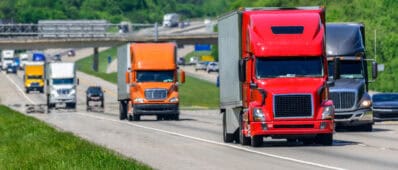Project Summary
California is moving toward a truck fleet that includes more natural gas vehicles (NGV) and electric vehicles (EV). These trucks are potentially heavier (in the case of NGVs) or much heavier (in the case of EVs) than current internal combustion vehicles. In 2018, AB 2061 was signed into law, allowing a 2,000 pound weight limit increase for near-zero-emission vehicles and zero-emission vehicles. AB 2061 requests that the UC ITS conduct a study to evaluate the new law’s environmental implications as well as its potential implications for transportation infrastructure. Therefore, using currently available information, this research study will answer the following questions at a conceptual level: What is an estimate of the effects on freight logistics of NGV and EV trucks operating with 250 to 1,000 kg of additional gross vehicle mass for battery power units and vehicle ranges for these vehicles? What is an estimate of the additional damage to local and state government pavements caused by all trucks operating with 250 to 1,000 kg of additional gross vehicle weight? What is an estimate of weight restriction problems for local and state government bridges caused by all trucks operating with 250 to 1,000 kg of additional gross vehicle weight? What is an estimate of the change in greenhouse gases from implementation of changes in the vehicle fleet considering well to wheel vehicle emissions and pavement maintenance and rehabilitation?

